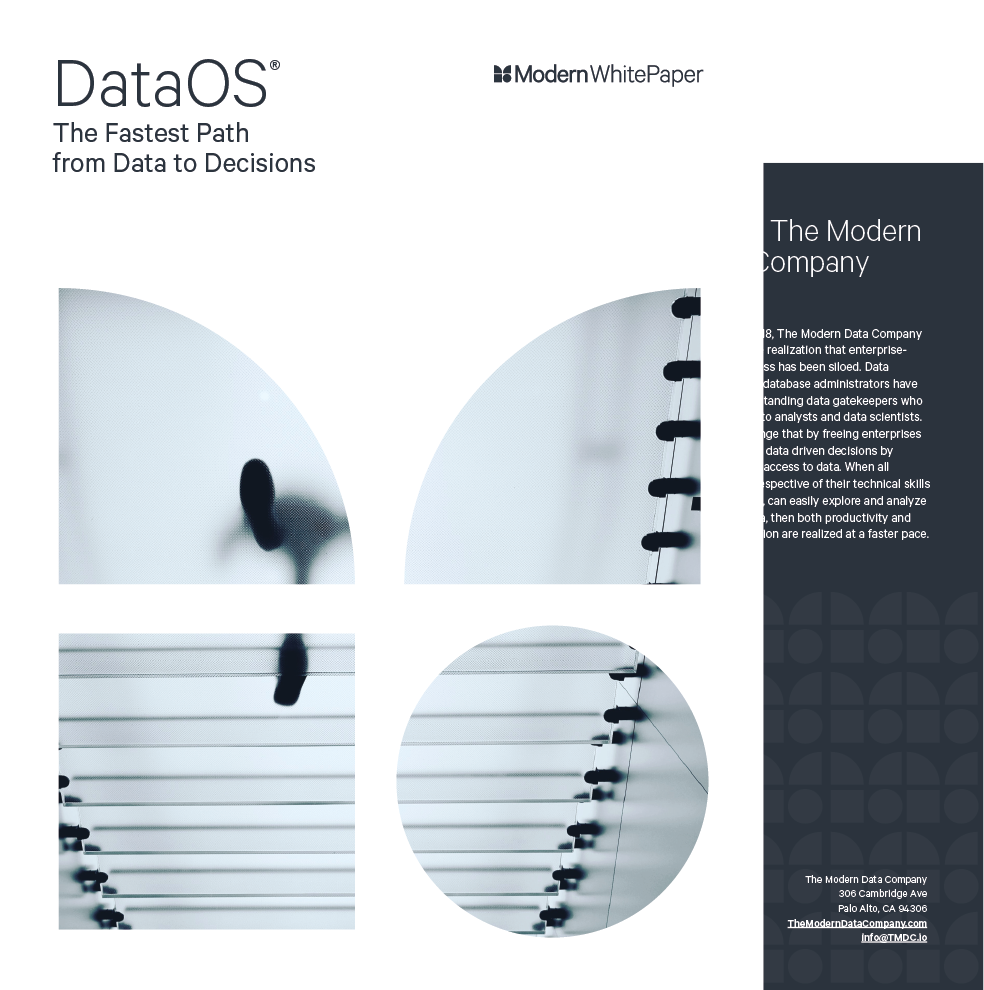
How to drive trusted decisions without changing your current data infrastructure.
Learn more about DataOS® in our white paper.
Data privacy is a challenging issue. With an increasingly wary public, the knee-jerk reaction is to lock data down. This is a mistake, because it restricts data analysis and all the benefits it can bring. Companies must balance privacy concerns while freeing up their data to provide valuable insights.
Privacy is a vital part of the relationship organizations build with consumers, but the world needs more data sharing rather than less. Can companies, research institutions, and governments balance the need for quality datasets for the public good with respect for the privacy of the people creating data? With the right architecture, the answer is a resounding “yes.”
A common public response to data breaches and misuse is to stop sharing data. For data to reach its potential, the public perception of data sharing has to change. The public has every right to data privacy, but responsible data sharing is essential for the public good.
The public wants to know that personal identifiers for sensitive data will be scrubbed. People also want to know that their data won’t become a liability for:
Despite these fears, data sharing is a public good. The responsible use of quality data allows cities and organizations to plan for disruption, enables research and innovation, and provides personalized services that consumers crave.
Balancing privacy with data sharing is challenging. Even thinking of it as a balancing act can lead to a zero-sum game, in which any increase in one means a loss for the other.
Instead of a see-saw, organizations can use composable architecture with a data fabric to maintain privacy without restricting data flow, creating a carousel instead. Data never stops flowing, but access to the data is granted on an individual, case-by-case basis, using configurable rules and attributes. Move away from zero-sum and toward a system that improves both privacy and data sharing.
This architecture is especially important for healthcare data, which is already notoriously difficult to come by, leading to challenges with bio-research. Data privacy is a vital part of nurturing the public trust that helps make healthcare data available, but indiscriminate lockdowns of data have far-reaching repercussions.
For example, the rapid response to Covid-19 happened precisely because of public access to data. A Chinese laboratory identified and sequenced the novel Coronavirus in early 2020, and putting it into the public domain allowed researchers to move quickly, even without an actual sample. Combined with health data, vaccine development was faster than ever in our history.
On the other hand, the lack of data made it difficult for the government to dispense economic stimulus and relief. The government did not have real access to data that might facilitate relief based on need, leading to large businesses snapping up limited funds while small businesses went under. With better data, governments could direct future efforts more efficiently.
Instead of locking data away, organizations should leverage new tools to change the entire conversation surrounding privacy.
A composable architecture allows organizations to shift to modular data pipelines. Institutions can scale operations up or down based on need, implement new components based on need, or remove ones that no longer serve without the system collapsing into loopholes.
A data fabric ensures that companies can build in governance at a more granular level. This component eliminates security loopholes while providing access to data for anyone who needs it. In fact, a data fabric is essential for moving away from balancing privacy with access. Companies will be able to boost both.
A modern approach to privacy protections allows organizations to release more data for social good. Consumers won’t need to worry that organizations will exploit their data, while researchers in critical fields such as healthcare will have access to data for training and research.
The Modern Data Company is working on the front lines of data privacy and data access. Our data fabric unlocks vital data with use cases in healthcare, government, retail, research, and more, but our approach puts security at the forefront. Organizations no longer need to sacrifice one for the other — they can achieve full data flow with absolute security. It’s a new era of data privacy.
Discover more about what Modern has accomplished in governance and security, and how DataOS helps ensure rigorous compliance by downloading our paper “Data Security and Governance in DataOS.”
Be the first to know about the latest insights from Modern.

For today's Chief Data Officers (CDOs) and data teams, the struggle is real. We're drowning in data yet thirsting for actionable insights. Traditional data architectures, with their centralized data lakes and batch-oriented processing, are like bloated, slow-moving...

Ever wondered why building data-driven applications feels like an uphill battle? It's not just you – turning raw data into something meaningful can be a real challenge. The process of extracting, transforming, and loading data, not to mention the subsequent phases of...

The Modern Data Company has been given an honorable mention in Gartner's 2023 Magic Quadrant for Data Integration. In honor of this achievement, we'd like to re-introduce ourselves for 2024 and let everyone know why DataOS has been and still is one of the most...

In the intricate and competitive world of wine and spirits, leveraging data effectively has become a cornerstone for success. Yet, this task is often hindered by a range of challenges, such as the lack of in-house data expertise, the high costs associated with data...

Problem & Opportunity Statement There have been constant shifts in alcohol drinking trends across the global markets, and with each new year, a new set of alcohol beverage consumption statistics, trends, and predictions follow. According to Distilled Spirits...
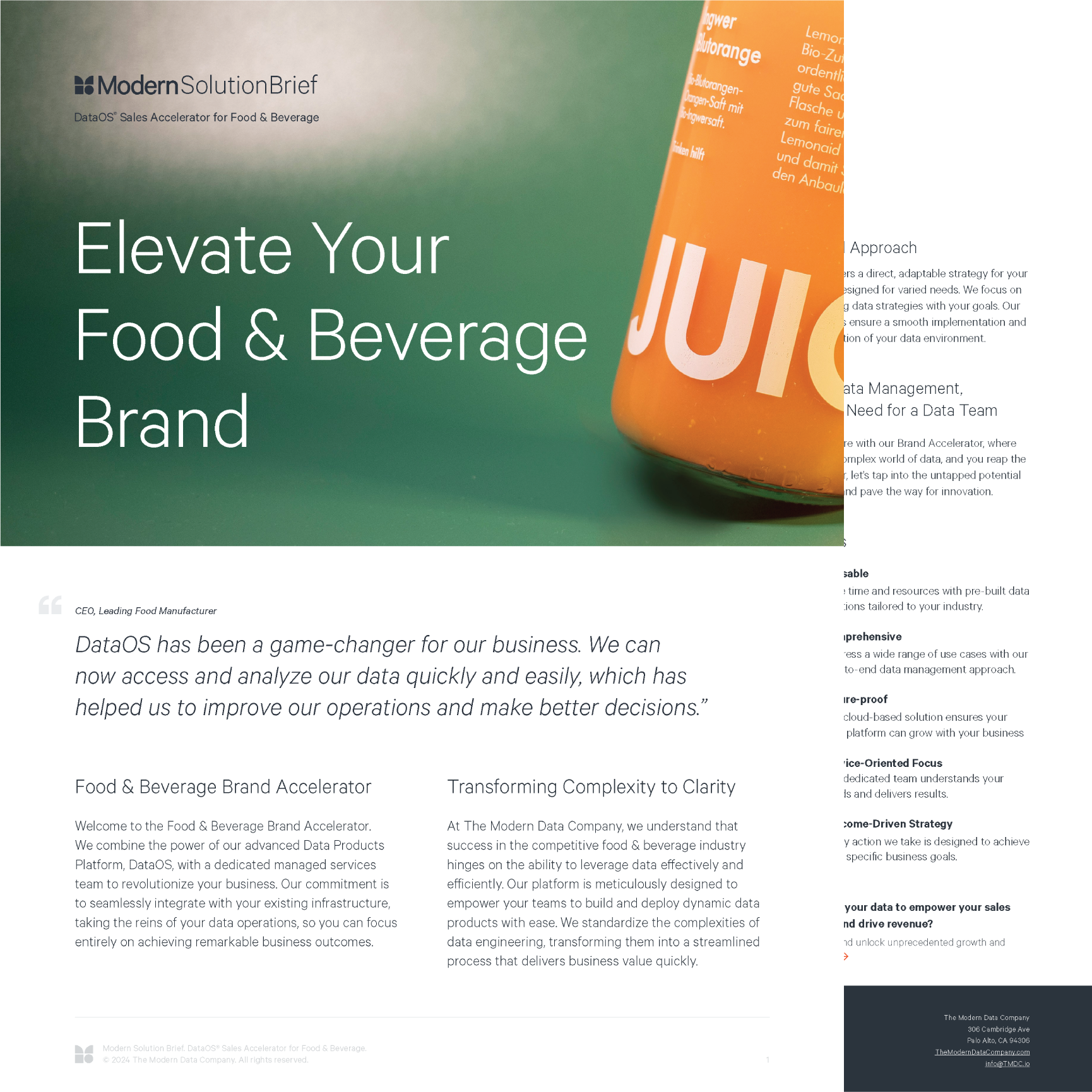
To view this protected post, enter the password below:
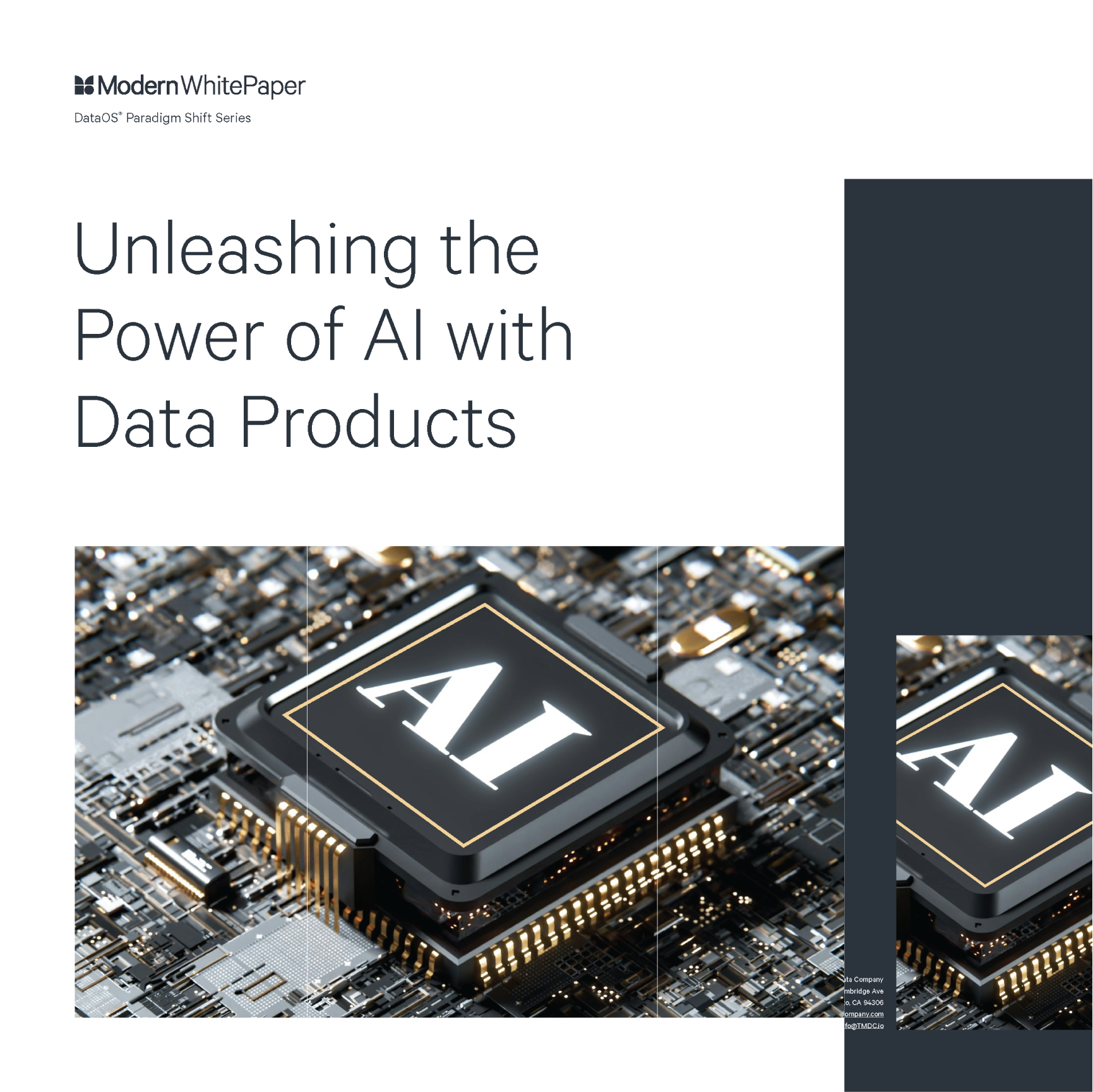
Unleashing the Power of AI with Data Products Traditional project-centric data management stifles AI innovation with siloed data, slow workflows, and limited reusability. Enter the era of data products: self-contained modules of data, logic, and infrastructure that...
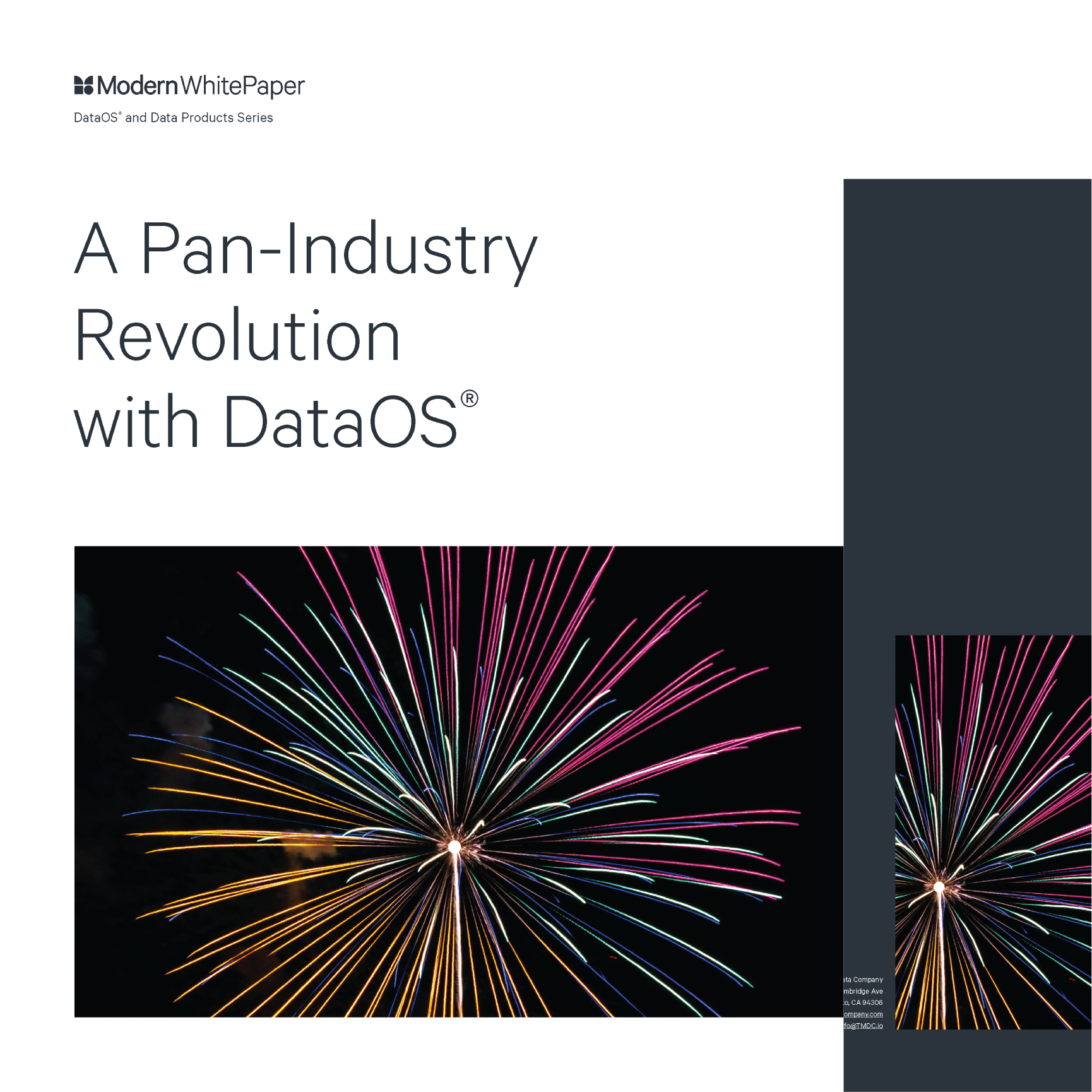
A Pan-Industry Revolution with DataOS® Unleash the revolution with Data Products powered by DataOS®. These self-contained data units, bursting with actionable insights, offer unmatched flexibility, agility, and compliance across all sectors. From personalized customer...
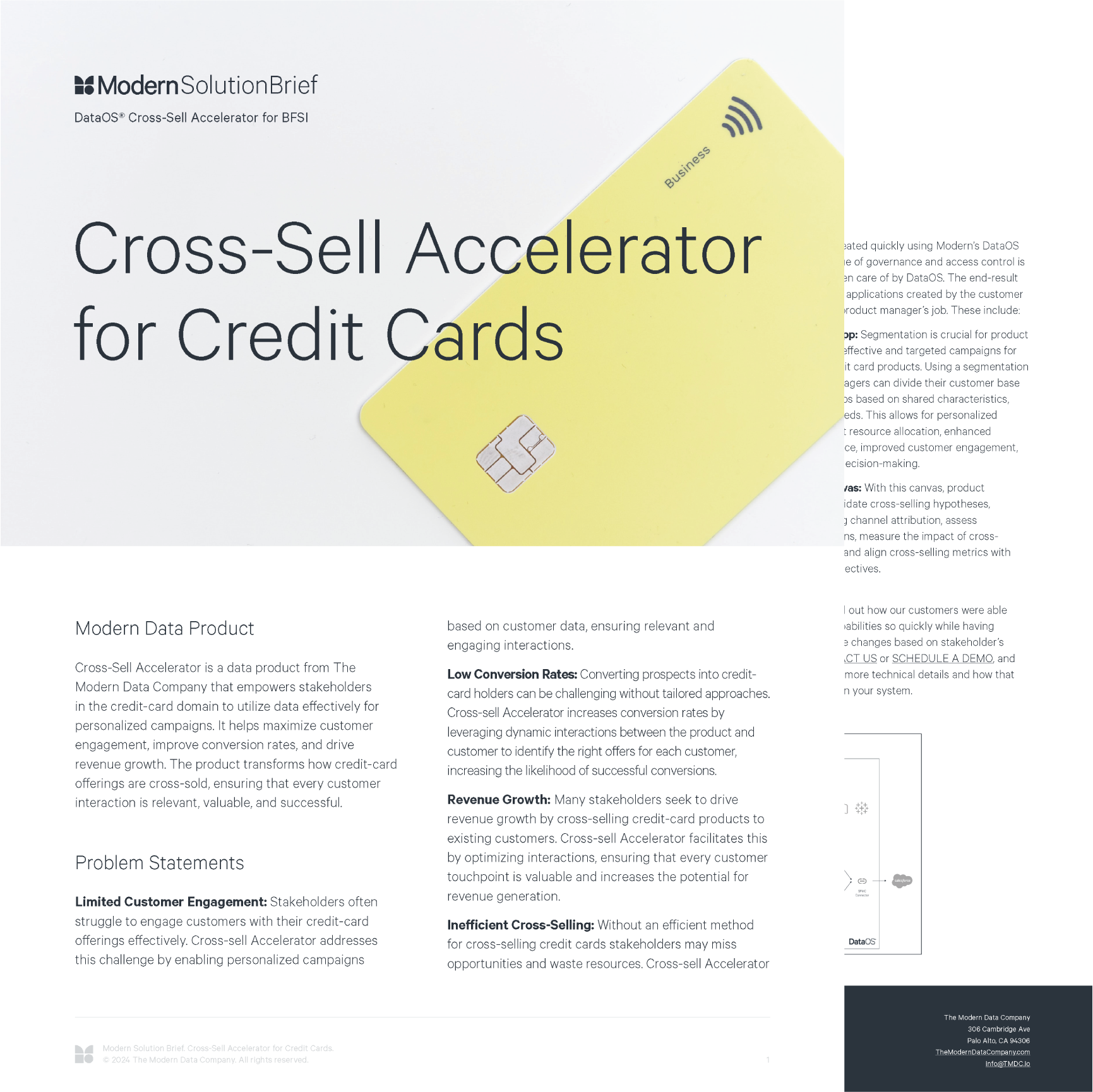
Cross-Sell Accelerator for Credit Cards In the hyper-competitive BFSI landscape, maximize credit card cross-sell potential with data-driven precision. Cross-Sell Accelerator empowers you to forge deeper customer connections with personalized offers, optimize...
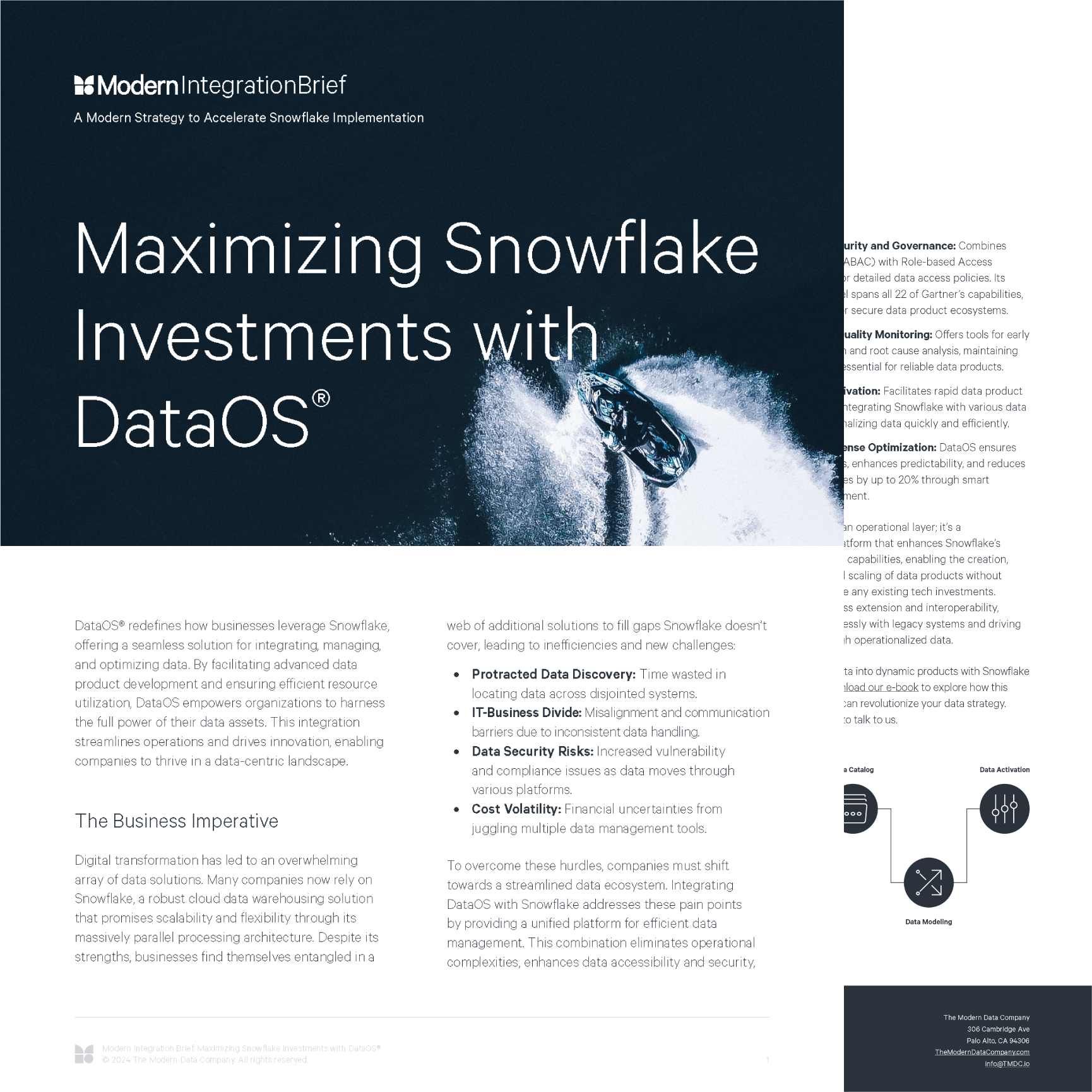
Maximizing Snowflake Investments with DataOSUnleash the true potential of your Snowflake investment with DataOS®, the data product platform that seamlessly integrates, empowers, and elevates your existing infrastructure. Build robust data products faster, eliminate...